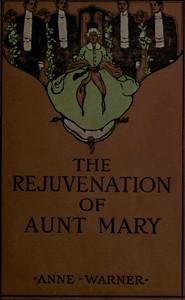|
|
Read this ebook for free! No credit card needed, absolutely nothing to pay.Words: 77825 in 16 pages
This is an ebook sharing website. You can read the uploaded ebooks for free here. No credit cards needed, nothing to pay. If you want to own a digital copy of the ebook, or want to read offline with your favorite ebook-reader, then you can choose to buy and download the ebook.

: The Economic Consequences of the Peace by Keynes John Maynard - World War 1914-1918 Economic aspects; Treaty of Versailles (1919 June 28); Economic history 1918-1945 World War I; Bestsellers American 1895-1923@FreeBooksTue 06 Jun, 2023 THE ECONOMIC CONSEQUENCES OF THE PEACE INTRODUCTORY The power to become habituated to his surroundings is a marked characteristic of mankind. Very few of us realize with conviction the intensely unusual, unstable, complicated, unreliable, temporary nature of the economic organization by which Western Europe has lived for the last half century. We assume some of the most peculiar and temporary of our late advantages as natural, permanent, and to be depended on, and we lay our plans accordingly. On this sandy and false foundation we scheme for social improvement and dress our political platforms, pursue our animosities and particular ambitions, and feel ourselves with enough margin in hand to foster, not assuage, civil conflict in the European family. Moved by insane delusion and reckless self-regard, the German people overturned the foundations on which we all lived and built. But the spokesmen of the French and British peoples have run the risk of completing the ruin, which Germany began, by a Peace which, if it is carried into effect, must impair yet further, when it might have restored, the delicate, complicated organization, already shaken and broken by war, through which alone the European peoples can employ themselves and live. In England the outward aspect of life does not yet teach us to feel or realize in the least that an age is over. We are busy picking up the threads of our life where we dropped them, with this difference only, that many of us seem a good deal richer than we were before. Where we spent millions before the war, we have now learnt that we can spend hundreds of millions and apparently not suffer for it. Evidently we did not exploit to the utmost the possibilities of our economic life. We look, therefore, not only to a return to the comforts of 1914, but to an immense broadening and intensification of them. All classes alike thus build their plans, the rich to spend more and save less, the poor to spend more and work less. But perhaps it is only in England that it is possible to be so unconscious. In continental Europe the earth heaves and no one but is aware of the rumblings. There it is not just a matter of extravagance or "labor troubles"; but of life and death, of starvation and existence, and of the fearful convulsions of a dying civilization. For one who spent in Paris the greater part of the six months which succeeded the Armistice an occasional visit to London was a strange experience. England still stands outside Europe. Europe's voiceless tremors do not reach her. Europe is apart and England is not of her flesh and body. But Europe is solid with herself. France, Germany, Italy, Austria and Holland, Russia and Roumania and Poland, throb together, and their structure and civilization are essentially one. They flourished together, they have rocked together in a war, which we, in spite of our enormous contributions and sacrifices , economically stood outside, and they may fall together. In this lies the destructive significance of the Peace of Paris. If the European Civil War is to end with France and Italy abusing their momentary victorious power to destroy Germany and Austria-Hungary now prostrate, they invite their own destruction also, being so deeply and inextricably intertwined with their victims by hidden psychic and economic bonds. At any rate an Englishman who took part in the Conference of Paris and was during those months a member of the Supreme Economic Council of the Allied Powers, was bound to become, for him a new experience, a European in his cares and outlook. There, at the nerve center of the European system, his British preoccupations must largely fall away and he must be haunted by other and more dreadful specters. Paris was a nightmare, and every one there was morbid. A sense of impending catastrophe overhung the frivolous scene; the futility and smallness of man before the great events confronting him; the mingled significance and unreality of the decisions; levity, blindness, insolence, confused cries from without,--all the elements of ancient tragedy were there. Seated indeed amid the theatrical trappings of the French Saloons of State, one could wonder if the extraordinary visages of Wilson and of Clemenceau, with their fixed hue and unchanging characterization, were really faces at all and not the tragi-comic masks of some strange drama or puppet-show. Why prompts the Will so senseless-shaped a doing? I have told thee that It works unwittingly, As one possessed not judging. In Paris, where those connected with the Supreme Economic Council, received almost hourly the reports of the misery, disorder, and decaying organization of all Central and Eastern Europe, allied and enemy alike, and learnt from the lips of the financial representatives of Germany and Austria unanswerable evidence, of the terrible exhaustion of their countries, an occasional visit to the hot, dry room in the President's house, where the Four fulfilled their destinies in empty and arid intrigue, only added to the sense of nightmare. Yet there in Paris the problems of Europe were terrible and clamant, and an occasional return to the vast unconcern of London a little disconcerting. For in London these questions were very far away, and our own lesser problems alone troubling. London believed that Paris was making a great confusion of its business, but remained uninterested. In this spirit the British people received the Treaty without reading it. But it is under the influence of Paris, not London, that this book has been written by one who, though an Englishman, feels himself a European also, and, because of too vivid recent experience, cannot disinterest himself from the further unfolding of the great historic drama of these days which will destroy great institutions, but may also create a new world. EUROPE BEFORE THE WAR Before 1870 different parts of the small continent of Europe had specialized in their own products; but, taken as a whole, it was substantially self-subsistent. And its population was adjusted to this state of affairs. After 1870 there was developed on a large scale an unprecedented situation, and the economic condition of Europe became during the next fifty years unstable and peculiar. The pressure of population on food, which had already been balanced by the accessibility of supplies from America, became for the first time in recorded history definitely reversed. As numbers increased, food was actually easier to secure. Larger proportional returns from an increasing scale of production became true of agriculture as well as industry. With the growth of the European population there were more emigrants on the one hand to till the soil of the new countries, and, on the other, more workmen were available in Europe to prepare the industrial products and capital goods which were to maintain the emigrant populations in their new homes, and to build the railways and ships which were to make accessible to Europe food and raw products from distant sources. Up to about 1900 a unit of labor applied to industry yielded year by year a purchasing power over an increasing quantity of food. It is possible that about the year 1900 this process began to be reversed, and a diminishing yield of Nature to man's effort was beginning to reassert itself. But the tendency of cereals to rise in real cost was balanced by other improvements; and--one of many novelties--the resources of tropical Africa then for the first time came into large employ, and a great traffic in oil-seeds began to bring to the table of Europe in a new and cheaper form one of the essential foodstuffs of mankind. In this economic Eldorado, in this economic Utopia, as the earlier economists would have deemed it, most of us were brought up. Free books android app tbrJar TBR JAR Read Free books online gutenberg More posts by @FreeBooks
: The Rejuvenation of Aunt Mary by Warner Anne - New York (N.Y.) Fiction; Humorous stories; Man-woman relationships Fiction; Families Fiction; Older people Fiction@FreeBooksTue 06 Jun, 2023

: Ishmael; Or In the Depths by Southworth Emma Dorothy Eliza Nevitte - Fiction@FreeBooksTue 06 Jun, 2023
|
Terms of Use Stock Market News! © gutenberg.org.in2025 All Rights reserved.






